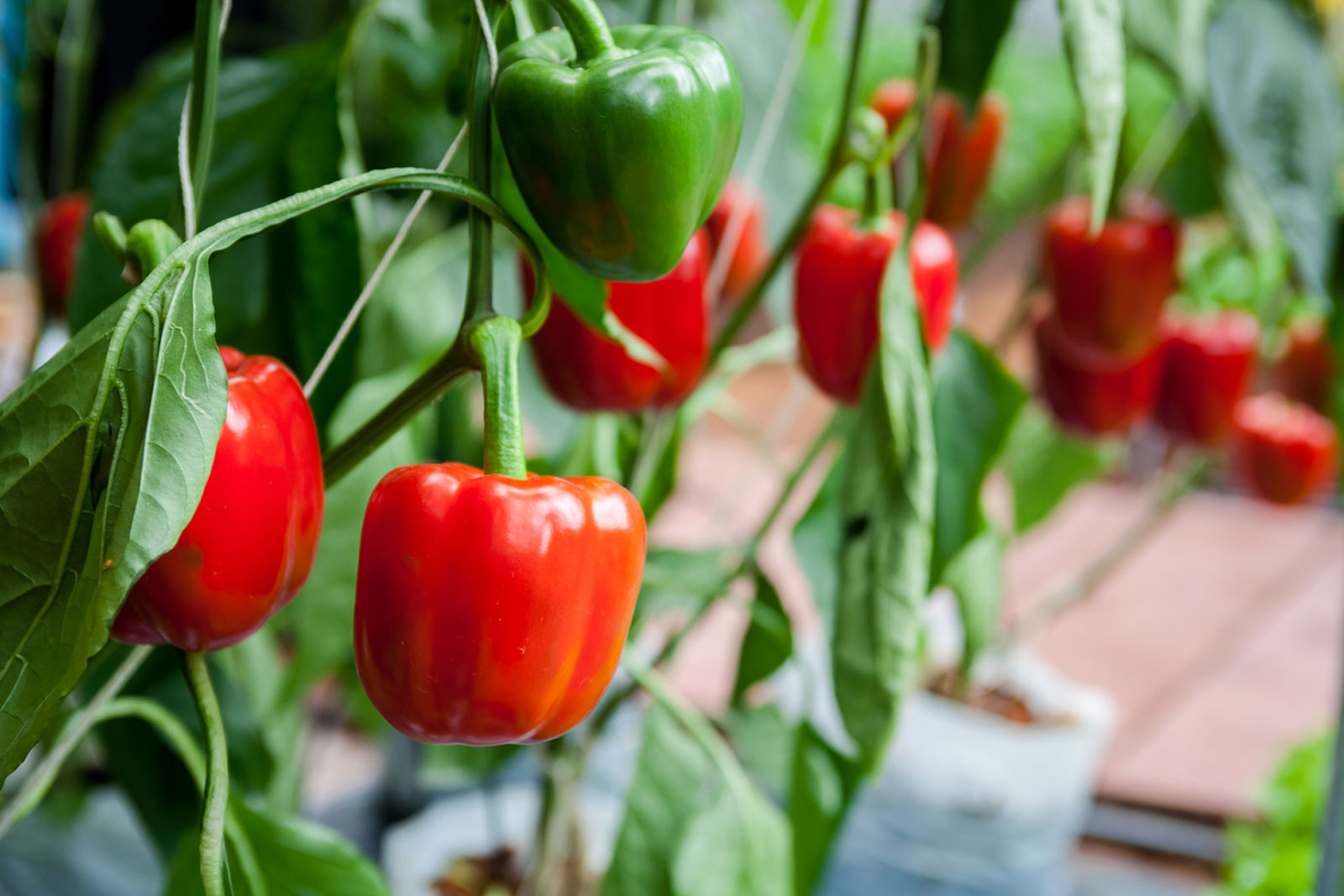1. Organics keep GMOs out of our food
Not only does the organic certification ensure there are no harmful chemicals on our food, it also guarantees that they are not GMOs (Genetically modified organism). Among other things, GMOs are often engineered to be used in conjunction with a single harmful chemical, such as Round Up or Agent Orange. Therefore, shopping organic is taking a stance against the large chemical producing corporations that have polluted the world’s food and fields.
2. Organic farming maintains healthy soil
Just how your choices at the grocery store dictate your health, they also dictate the health of the earth. Non organic foods are sprayed with extremely toxic chemicals that kill everything other than the crop itself. This includes the living organisms that a plant needs to grow and make the soil nutrient rich. Once those organisms are killed off they are replaced with synthetic fertilizers made up from… you guessed it, more toxic chemicals.
3. Organics don’t inhibit the growth of super strains (explanation below!)
Nature always adapts. Spraying chemicals to kill bugs only makes them grow, adapt to overcome the horrible toxins we use to kill them. There will always be something that eats the plant, and it will continue to grow and adapt until we no longer have control over it. The toxins we use will eventually become ineffective and plants and pests will become much more harmful.
4. Organic farming supports pollinators
Herbicides and Pesticides do not differentiate between good and bad bugs, it simply kills them all. In order for there to be life on earth we need to maintain a certain level of biodiversity; this includes everything from the biggest mammals to the tiniest of insects. Organic farming practices healthy growing techniques that aim to maintain that necessary level of biodiversity.
5. Organics support a healthier farm lifestyle and a healthier community
Growing food organically does not harm the surrounding community in which it’s grown. Unlike non organic practices, organics keep toxins out of the air, out of the drinking water and out of the soil. Farmers aren’t exposed to herbicides and pesticides all day; and if food is bought at the market where it’s grown, it reduces transportation costs and emissions.
6. Organic foods are often more nutrient rich
Organic foods get their nutrients straight from healthy, rich, organic dirt. If the dirt is healthy then there should be no need for fertilizers. Non organic crops get their nutrients from synthetic fertilizers made from fossil fuels. Years of not replenishing the soil with organic matter forces farmers to add synthetic fertilizers. This leads to nutrient deficient crops grown from the same thing that fuels our cars. We’ll let you make up your own mind on this one.
7. Organics are typically not monocropped
Planting a single crop in a large area (AKA: monocropping) leaves that crop extremely vulnerable to being wiped out by a single disease or bug. Farmers are forced to spray chemicals that kill absolutely everything other than the crop itself. As a result, that crop is the laden with chemicals which humans should not be ingesting. Having lots of different plants attracts lots of different bugs, all of whom end up working in harmony to promote healthy plants and a healthy earth.
8. Organic foods are often more flavourful
Just how the meat of a stressed animal is not as tasty and tender as the meat of a relaxed animal (so we hear – we’re actually vegetarian!), the flavour of a stressed crop will not be as good as that of a crop grown with ease. A plant that needs to dig deeper to find the nutrients it needs is stressed and cannot put that energy towards the growth of its fruit.
9. Keeps harmful pesticides and herbicides out of our beautiful ocean
Everything ends up in the ocean. Whether the chemicals are leaching through the soil into aquifers below; being blown into nearby rivers and lakes; or simply running off into the ocean after the rain. The toxins sprayed on our food are made to kill, and will do just that no matter where they are.
10. Organics don’t cost taxpayers millions of dollars
Farming is in no way an easy job. The work is hard and the reward can be small. In order to keep the extremely expensive, large scale, non-organic farming practice running millions of taxpayer dollars need handed out in subsidies. In addition, the impacts of non-organic practices need to be dealt with… There’s a few more million in clean up, restoration, and public health. Millions (perhaps billions) of dollars of taxpayer money goes towards making a big mess, then doing a very questionable job cleaning it up. Red flag? We say yes.
Jeffrey Harrison . (2016). 10 REASONS WHY ORGANIC FOOD IS BETTER FOR YOU & THE PLANET. 2020, de Nature’s Path Organic Web Site: https://www.naturespath.com/en-us/blog/11-reasons-why-organic-food-is-better-for-you-the-planet/

